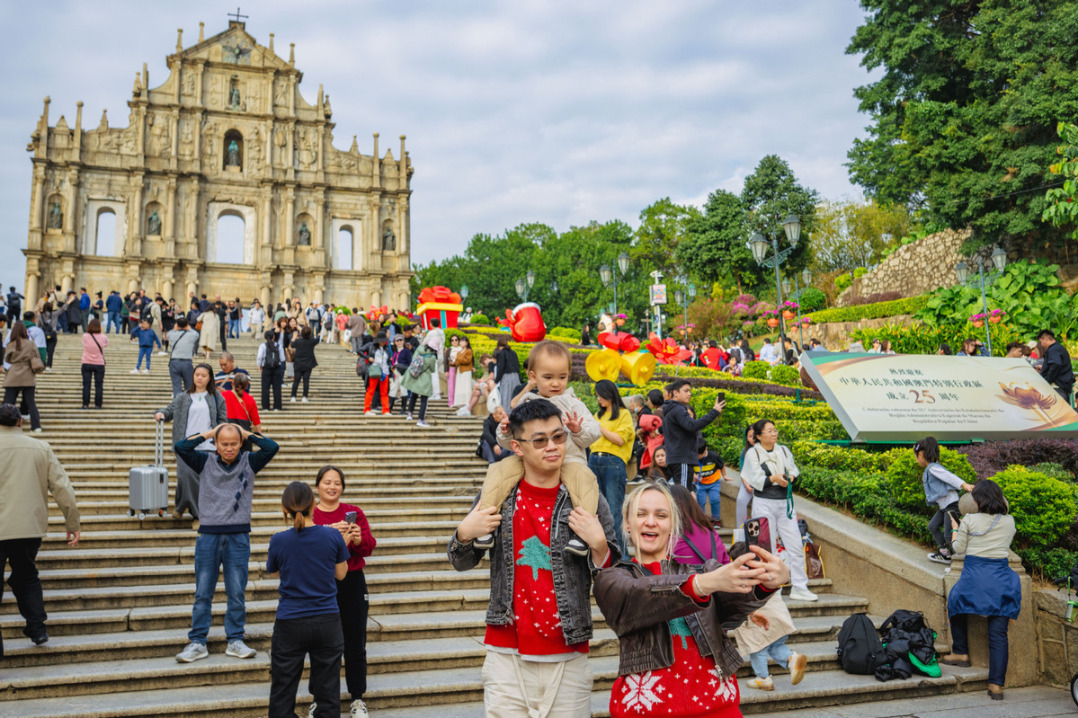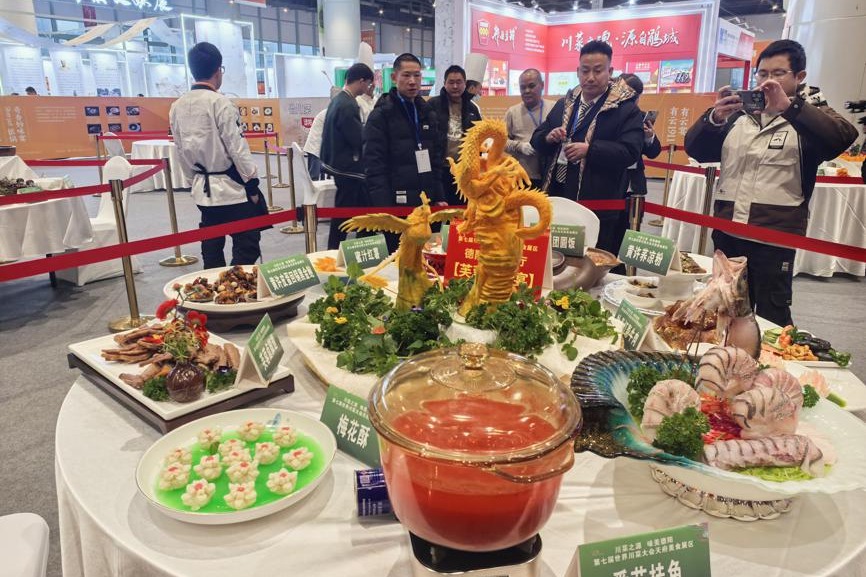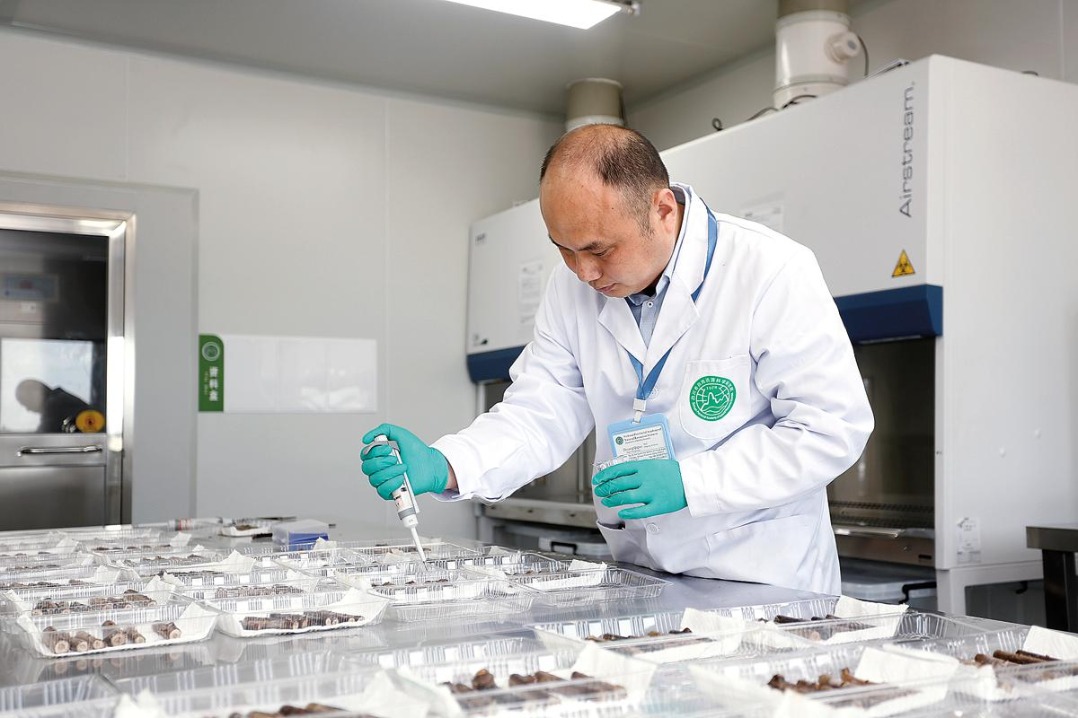Ginseng-based industry boom in Tonghua
City leverages innovative strategies to improve traditional medicine sector


The ginseng industry in Tonghua, Jilin province, has entered a phase of high-quality development under a new growth strategy, according to Sun Jian, Party secretary of the city.
Ginseng, a perennial plant renowned for its medicinal properties, has been a staple of traditional Chinese medicine for centuries. In the first 11 months of this year, the comprehensive output value of the ginseng industry in Tonghua, a key production area in China, reached 37.8 billion yuan ($5.2 billion), a 13.6 percent increase year-on-year.
"The industry's comprehensive output value for the entire year is expected to hit a milestone of 40 billion yuan," Sun said.
Tonghua is home to 26 ginseng enterprises that each earn over 20 million yuan in annual revenue and hosts both A-share-listed companies specializing in ginseng. The city produces over 800 varieties of ginseng products spanning five major categories, with exports reaching countries such as Japan, South Korea, France and Italy.
Since last year, Tonghua has prioritized the ginseng industry as a cornerstone of its green transformation and overall revitalization, aligning with the national Healthy China initiative and the rising demand for health and wellness products.
"The third plenary session of the 20th CPC Central Committee, held in July, proposed promoting the preservation and innovative development of traditional Chinese medicine. This presents significant strategic opportunities for the ginseng industry," Sun said.
Located in the Changbai Mountain region, Tonghua benefits from a favorable climate, fertile soil and a forest coverage rate exceeding 66.6 percent — ideal conditions for cultivating forest-grown ginseng. To advance the industry, Tonghua has adopted a new development path focused on rational forest land use, high-quality seed breeding, digital management and brand building.





































